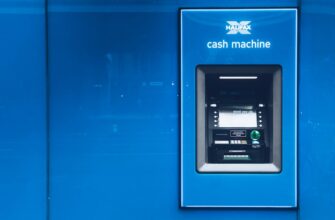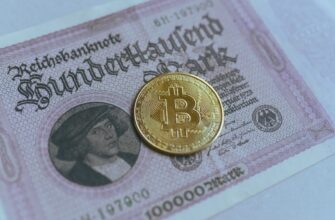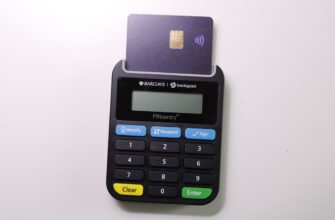With cryptocurrency airdrops becoming increasingly common in Indonesia, many investors are unaware that these “free” tokens can trigger significant tax obligations. Failure to report airdrop income properly may lead to severe penalties under Indonesian tax law. This guide breaks down everything you need to know to stay compliant and avoid unexpected fines.
- Understanding Crypto Airdrops
- Indonesian Tax Laws for Cryptocurrency
- Are Airdrops Taxable in Indonesia?
- Penalties for Non-Compliance
- How to Report Airdrop Income Correctly
- Common Mistakes to Avoid
- Frequently Asked Questions (FAQ)
- 1. Do I pay tax if I never sell my airdropped tokens?
- 2. How do I value tokens with no immediate market price?
- 3. Are airdrops under IDR 1 million tax-exempt?
- 4. Can I deduct transaction fees?
- 5. What if I receive airdrops via foreign exchanges?
Understanding Crypto Airdrops
Airdrops involve the free distribution of cryptocurrency tokens or coins to wallet addresses, typically to promote new projects, reward loyal users, or decentralize ownership. Unlike purchases or mining rewards, airdrops require no upfront investment from recipients. Common types include:
- Standard Airdrops: Random distributions to active wallet addresses
- Holder Airdrops: Rewards for owning specific cryptocurrencies
- Bounty Airdrops: Distributed after completing social media tasks
- Exclusive Airdrops: Targeted at early adopters or VIP users
Indonesian Tax Laws for Cryptocurrency
Indonesia classifies cryptocurrencies as commodities regulated by BAPPEBTI (Commodity Futures Trading Regulatory Agency), not as legal tender. Key tax frameworks include:
- Income Tax (PPh): Applies to crypto capital gains and other income
- VAT: 0.11% levy on crypto asset transactions
- Regulatory Basis: Finance Minister Regulation No. 68/PMK.03/2022
All crypto-related income—including airdrops—must be reported in annual tax returns (SPT) filed with the Directorate General of Taxes (DJP).
Are Airdrops Taxable in Indonesia?
Yes. Indonesian tax authorities consider airdrops taxable income under Article 4(1) of the Income Tax Law. Key principles:
- Tax triggers at the moment of receipt, not when sold
- Value is based on fair market price in IDR at airdrop time
- Taxed as “Other Income” at your personal income tax bracket (5%-30%)
- Business entities pay 22% corporate tax
Penalties for Non-Compliance
Failing to report airdrop income accurately invites severe consequences:
- Administrative Fines: 2% monthly interest on unpaid taxes (capped at 48%)
- Late Payment Fees: 1-2% monthly penalties on overdue amounts
- Criminal Charges: Up to 6 years imprisonment for intentional evasion
- Audit Risks: Increased scrutiny of all crypto transactions
Penalties apply even if you weren’t aware of the tax obligations, making proactive compliance essential.
How to Report Airdrop Income Correctly
Follow these steps to avoid penalties:
- Document Receipt: Record token amounts, dates, and wallet addresses
- Convert to IDR: Use exchange rates from reputable platforms (e.g., Indodax) at exact receipt time
- Report in SPT: Include under “Other Income” (Form 1770 for individuals)
- Pay by Deadline: Settle taxes by March 31st annually
- Keep Records: Maintain proof for 5 years (screenshots, transaction IDs)
Use the DJP’s e-Filing portal or consult a certified crypto tax consultant for complex cases.
Common Mistakes to Avoid
- Assuming “free” means tax-exempt (all airdrops are taxable)
- Delaying reporting until tokens are sold (tax applies upon receipt)
- Using incorrect valuation methods (must use receipt-date market value)
- Ignoring small airdrops (no minimum threshold exists)
- Failing to track hard forks (treated similarly to airdrops)
Frequently Asked Questions (FAQ)
1. Do I pay tax if I never sell my airdropped tokens?
Yes. Tax obligations arise when you receive the tokens, regardless of whether you hold or sell them.
2. How do I value tokens with no immediate market price?
If no market exists at receipt, document the $0 valuation. Report income later when value becomes determinable.
3. Are airdrops under IDR 1 million tax-exempt?
No. Unlike some income types, Indonesia has no de minimis exemption for crypto airdrops.
4. Can I deduct transaction fees?
Generally no, since airdrops involve no acquisition costs. However, selling expenses may reduce capital gains tax later.
5. What if I receive airdrops via foreign exchanges?
Indonesian taxpayers must report global income. Use the exchange’s listed price converted to IDR at receipt time.
Always consult a qualified tax advisor for personalized guidance, as regulations evolve rapidly. Proactive compliance protects you from penalties that could far exceed your airdrop’s value.








